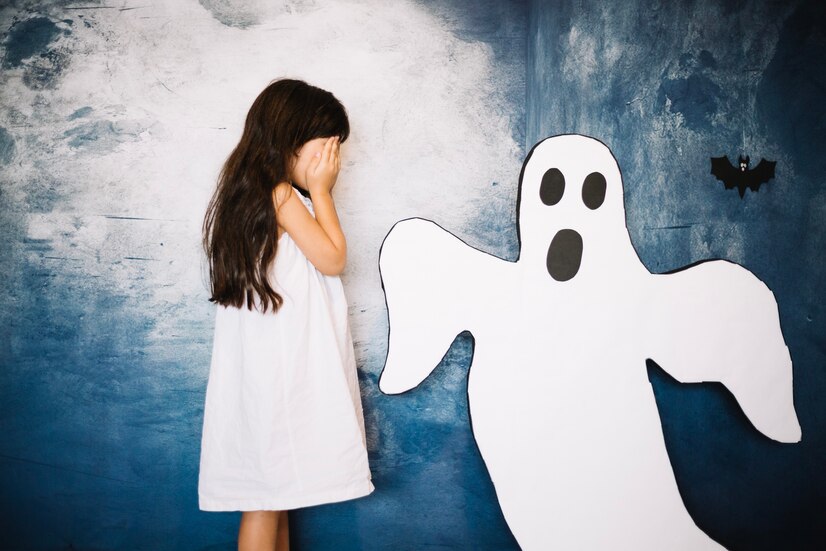Catagelophobia: Understanding the Fear of Ridicule and How to Overcome It

What Is Catagelophobia?
Catagelophobia, also known as the fear of being ridiculed or judged by others, is an intense and overwhelming anxiety that can profoundly affect one’s daily life. Although everyone feels some apprehension about being laughed at occasionally, those with catagelophobia experience this fear at an entirely different level—often avoiding situations where ridicule might occur, even if the likelihood is minimal.
This underrecognized phobia is closely tied to broader issues like social anxiety and low self-esteem. But it differs in its hyper-focus on the possibility of public embarrassment. If you’ve struggled with deep discomfort at the mere thought of being judged or can’t help but relive moments of perceived ridicule, you’re not alone. Many individuals share similar experiences, and we’re here to explore the origins, impacts, and ways to cope.
This article uncovers the science behind catagelophobia, its psychological and physical effects, and actionable strategies to regain control of your life.
Understanding the Origins and Triggers of Catagelophobia
Like other phobias, catagelophobia often stems from a combination of personal experiences, genetic predisposition, and environmental factors. Below, we explore some of the possible origins:
- Traumatic Experiences
Many individuals with catagelophobia trace their fear back to specific negative events such as being teased at school, humiliated in public, or excessively criticized during childhood. Such incidents can create a lasting psychological imprint, reinforcing the idea that any social slip-up will lead to ridicule.
- Perfectionist Tendencies
People with perfectionistic traits are more likely to develop high levels of self-consciousness, which can make them highly sensitive to their perceived flaws. The pressure to “get everything right” amplifies negative thoughts about being judged.
- Overly-Critical Environments
Growing up in an environment where criticism or mockery was common can fuel a fear of ridicule later in life. For example, children raised by highly judgmental caregivers may internalize the belief that they are constantly under scrutiny.
- Societal and Cultural Norms
Social expectations and fear of violating cultural norms can also feed into catagelophobia. Societies that emphasize public image or penalize mistakes harshly can make individuals more vulnerable to this phobia.
Common Triggers of Catagelophobia
While specific triggers vary person to person, here are some common scenarios that provoke anxiety for those with catagelophobia:
- Public speaking or presentations
- Group settings, such as parties or meetings
- Embarrassing mishaps, like tripping or making small mistakes
- Receiving jokes or teasing—even playful, lighthearted ones
- Criticism, either constructive or otherwise
If any of these situations resonate with you, understanding your triggers may be the first step toward managing your fears.
Personal Stories and Experiences with Catagelophobia
Hearing others’ stories can be a powerful way to recognize you’re not alone in dealing with anxiety or catagelophobia. Consider these accounts from individuals who’ve lived with this fear:
Sophia’s Story
“Middle school was where it started for me,” remembers Sophia, 28. “I was humiliated during a group project presentation when I mispronounced a word and the whole class laughed. I was mortified. Since then, public speaking has been my biggest fear. I start panicking at the idea of standing in front of a crowd again.”
Ben’s Journey
“My fear isn’t about strangers—I get so worked up even with my own friends,” says Ben, 34. “I always wonder, ‘Did they think I sounded stupid? Are they secretly making fun of me?’ It’s exhausting.”
These stories echo the sentiments of countless others living with catagelophobia. Sharing these experiences not only normalizes the struggle but also sheds light on unique ways to cope.
The Psychological and Physical Effects of Catagelophobia
Catagelophobia can manifest in both psychological and physical ways. When left unaddressed, it may lead to the following:
Psychological Impacts:
- Heightened Anxiety
Social interactions, which should feel natural and enjoyable, become stress-laden events. The constant fear of humiliation creates mental fatigue and stress.
- Avoidance Behavior
Many individuals develop avoidance behaviors, skipping out on opportunities such as school presentations, work meetings, or social gatherings to minimize the chance of ridicule.
- Negative Self-Talk
Persistent self-criticism, second-guessing, and thoughts of being “not good enough” can perpetuate low self-esteem and erode confidence over time.
Physical Symptoms:
- Pounding heart or palpitations
- Sweating, trembling, or dry mouth
- Gastrointestinal discomfort, such as a churning stomach
- Shortness of breath or tightness in the chest
If left unchecked, these symptoms may interfere with work, relationships, and daily happiness.
Coping Mechanisms and Treatments for Catagelophobia
The good news is that catagelophobia is highly treatable. Here are some strategies worth exploring:

Professional Interventions:
- Cognitive Behavioral Therapy (CBT)
CBT remains one of the most effective treatments for anxiety-related conditions. It helps individuals reframe their thoughts, challenge negative beliefs, and reduce avoidance behavior.
- Exposure Therapy
Gradually confronting feared situations can desensitize individuals to the triggers over time. For example, starting with small social interactions and incrementally increasing complexity can help build tolerance.
Self-Help Strategies:
- Mindfulness Practices
Learning techniques like meditation or progressive muscle relaxation helps manage the physical effects of anxiety. Try setting aside 10 minutes a day to focus on deep breathing or mindfulness exercises.
- Positive Affirmations
Replace critical self-talk with affirmations like “I am worthy, mistakes help me grow, and others aren’t judging as much as I think.” Over time, this mental rewiring builds up resilience.
- Seeking Community Support
Many people find solace in connecting with anxiety support groups, both in-person and virtual. Platforms like Reddit’s anxiety support community or mental health Facebook pages offer spaces to share experiences and receive encouragement.
- Journaling
Write about your fears and examine whether they align with reality. Often, you’ll find that perceived ridicule doesn’t happen nearly as often as you expect.
For anyone dealing with persistent or overwhelming symptoms of catagelophobia, consulting a licensed therapist is an essential step in recovery.
Tips for Supporting Someone with Catagelophobia
If someone in your life struggles with catagelophobia, here’s how you can show support:
- Listen Without Judgment
Avoid dismissing their concerns with phrases like “Stop worrying so much.” Validate their fears and approach them with understanding.
- Offer Encouragement
Highlight their strengths and successes. Remind them that everyone makes mistakes—it’s part of being human.
- Be Patient
Healing doesn’t happen overnight. Reassure them that you’re there for them as they work through their anxiety.
- Learn More
Take the time to understand catagelophobia and anxiety in general. Educating yourself allows you to empathize better and offer appropriate support.
Finding the Courage to Seek Help
Living with catagelophobia is undoubtedly challenging, but recovery is possible with the right tools and support. Seeking help from professionals specializing in anxiety support and mental health can lead to significant improvements in emotional well-being.
If you identify with the stories shared in this blog or know someone who does, know this: You are not alone. With increased awareness, access to resources, and a little courage, it’s entirely possible to overcome the fear of ridicule and reclaim your life.



